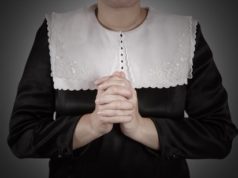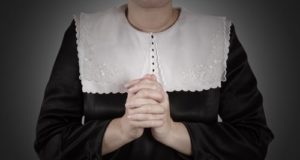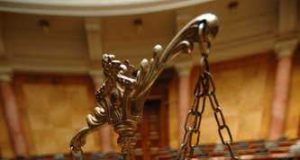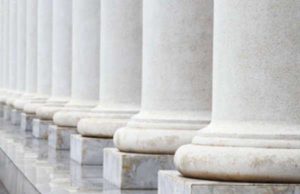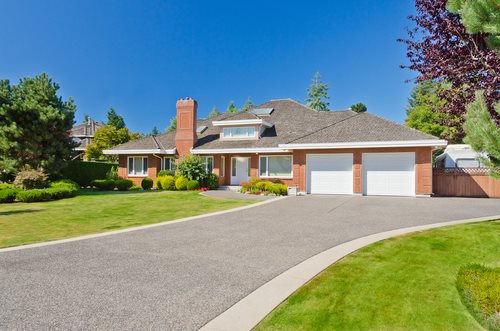
New “Maternity Mansion” in California Raises Legal Questions
When neighbors in a Chino Hills, California neighborhood noticed an influx of heavily pregnant Chinese women entering a house that had recently been bought, they became suspicious of what was happening inside. As it turns out, the house was a “maternity mansion,” a growing trend where wealthy Chinese women come to the United States to give birth and secure American citizenship for their children. While the practice is legal, it has raised legal and ethical questions about the business of birthright citizenship and the operation of these mansions.
What are “Maternity Mansions”?
Maternity mansions, also known as “birthing hotels,” are typically large, luxurious homes rented out for months at a time to pregnant women from other countries who want their children to be born in the United States. The practice is popular among wealthy Chinese women who want to give their children American citizenship, which comes with a range of benefits, including visa-free travel to more than 100 countries and access to better education and job opportunities.
These mansions offer a range of services to the expectant mothers, including pre- and post-natal care, meals, and transportation. The mothers typically pay tens of thousands of dollars for the experience, which includes the cost of airfare, accommodation, and other associated expenses.
Legal and Ethical Questions
While the practice of giving birth in the United States to secure citizenship for children is legal, the operation of these maternity mansions raises legal and ethical questions. Some argue that the practice is exploitative, with mothers being taken advantage of and the children being essentially used as a commodity to secure citizenship.
Others argue that the business of birthright citizenship perpetuates immigration issues in the country, with some mothers returning to the U.S. with their children to take advantage of social, educational, and economic benefits available to citizens, while never living in the country again.
The operation of maternity mansions has also raised concerns among neighbors, who complain about noise, traffic, and the presence of unfamiliar individuals in their neighborhoods. In some cases, the operation of these mansions violates zoning and health codes, and the operators of the mansions face legal repercussions.
Conclusion
The operation of maternity mansions in the United States raises legal and ethical questions about the business of birthright citizenship and the exploitation of mothers and children. While some argue that the practice is a legitimate way for mothers to secure a better future for their children, others argue that it perpetuates immigration issues and unjustly takes advantage of U.S. resources. As the popularity of these mansions continues to grow, there will be a need for legal and regulatory frameworks to address the issues at hand and ensure that the practice is conducted in an ethical and lawful manner.
When neighbors first noticed people entering the house that had recently been bought in their Chino Hills, California neighborhood, they noticed something immediately: the women tended to be Chinese and very heavily pregnant. The large mansions in the residential area were used only as homes—what business could all the women entering and leaving the house at odd times be doing there?
The answer, as it turned out, had to do with United States citizenship. The mansion in the quiet California neighborhood was serving as a maternity hotel, allowing Chinese citizens to have their children in the United States so that the child would automatically be an American citizen by birthright.
The seven bedroom mansion is apparently linked to a website that offers women a chance to have an American child for prices ranging up to $15,000. Chino Hills residents are outraged by the business, which they describe as birth tourism and claim is illegal according to the zoning code that applies to the residence.
The mayor of Chino Hills, Art Bennett, has announced that the city has issued a cease and desist order to the people running the maternity hotel. According to Bennett, hotels may not be run inside a normal residential home without proper permitting, which the home in question had not obtained or sought.
Sites that encourage wealthy women in other countries to give birth in the United States are not new. According to abcnews.com, birthing tourism is on the upswing and is expected to continue. Some websites advertise that as soon as the child born in the United States has turned 21, immigration laws allow them to sponsor their remaining family members for permanent residency and eventually citizenship.
Chinese citizens in the economic elite are also interested in sending their children to United States universities and colleges without incurring expensive additional tuition due to their status as foreign citizens. Most United States colleges charge $5,000-15,000 more per year for foreign student tuition.
The website that ran the Chino Hills maternity mansion even went so far as to suggest ways for heavily pregnant women to hide their pregnancies from United States customs officials, to avoid being sent back home. Their tactics included wearing very loose fitting clothing and having bags or accessories that worked to disguise the large pregnant belly.
In addition to Chinese birthing tourism, similar birthing hotels have opened for clientele from all over Asia and Eastern Europe. These tend to be clustered in major United States cities with easy airport access.
Sources: abcnews.com, examiner.com



